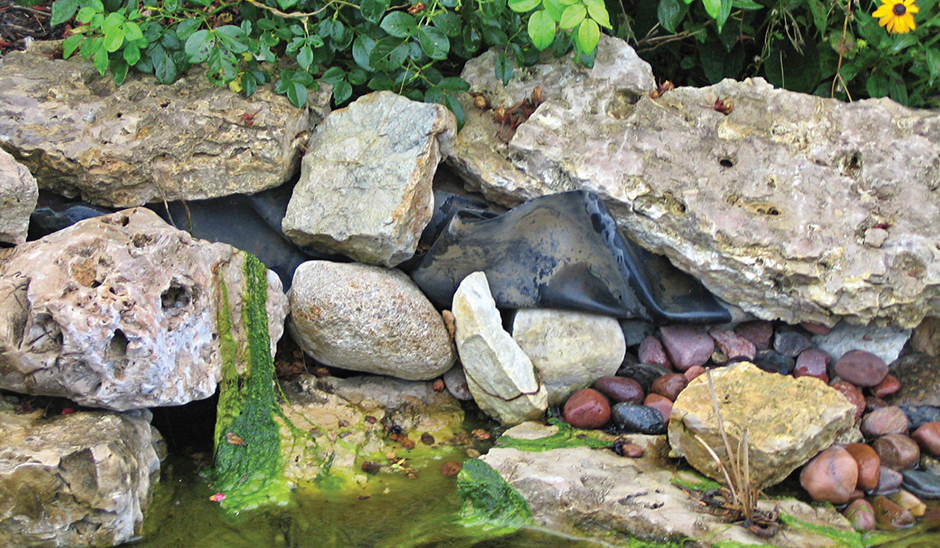
Much to the delight of pond builders everywhere, the water feature industry is experiencing a boon that hasn’t been seen for several years. People are traveling less and tend to prefer creating an oasis in their own backyard that can be appreciated all year long.
It can be tough keeping up with the demand for ponds, waterfalls and fountains, and no one wants to have to go back and fix mistakes while new customers are waiting. To increase your pond-building success, be sure to avoid these top construction mistakes.
1. Poor Location
You’ve heard the popular real estate mantra. “Location, location, location!”
It’s no different with ponds — location is everything! Too often, ponds are placed in an unused area of a property or built in a low spot that collects water. Both locations cause problems. Unused areas of a landscape are unused for a reason, and it’s a shame to put a key feature in an area that may not be seen regularly. Always try to bring the pond — or any water feature — as close as possible to the house and any other popular viewing areas.Low spots in the landscape that collect water are challenging to build in, and water quality can suffer from too much runoff and pollutants entering the pond system. Although you might think it’s a great place since water already collects there, think again.
2. Labor Miscalculation
Underestimating the amount of physical work involved with a pond installation is common, especially for those new to water features. Consider the pond’s location, type of soil, topography and any other obstacles that might add to the time it takes to excavate the pond.
3. Steep Sides
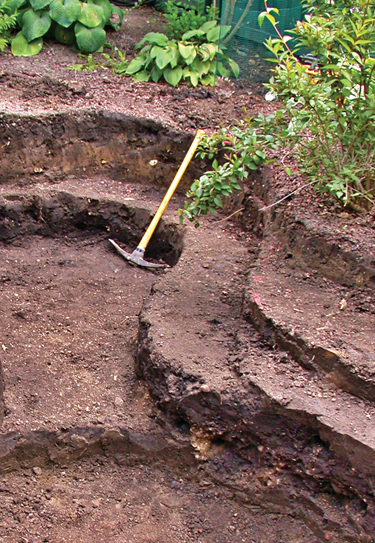
Digging a deep pit with no provisions for shallow areas makes stacking stone on the inside of the pond very difficult. The excavation is unstable, and since there are no shallow areas, it is difficult and dangerous to get in and out of the pond for maintenance.
Plus, you need to have ledges for aquatic plants, the majority of which grow in less than 12 inches of water.
4. Not Enough Depth
A shallower pond might be easier to dig than a deeper one, but if it’s not deep enough, the fish won’t be able to overwinter in the north.
If you live in the south, your pond won’t stay cool if it’s too shallow. Aim for a minimum depth of 24 inches when building a pond that contains fish.
5. Lack of Ledges
A common mistake is when a pond is excavated in a bowl fashion, with gently sloping sides that get deeper toward the middle. You’ve probably seen this a lot when you’re called in for a pond renovation.
Lack of ledges is difficult to disguise with rock, since gravel will slide toward the deep area, and boulders will take up too much room.
6. Misuse of Rock & Stone
An installed pond is disguised with rock to give it a desired naturalistic appearance. A typical feature will use several tons of stone.
Novice contractors might see this as too much work, so they’ll choose small, manageable stones that are easy to move and place. While the work might be easier, this results in the pond falling short of aesthetics. Also, the pond loses the structural importance provided by the larger, more difficult-to-move boulders.
7. Building too Small
Small ponds are easier to construct — think less digging and fewer rocks to place. However, they’re actually harder to maintain. A small feature is less stable than a larger volume of water, and most of your customers will end up wanting to enlarge the water garden anyway later down the road. Not only do they want more of what they love, but their plants and fish can also outgrow a small feature.
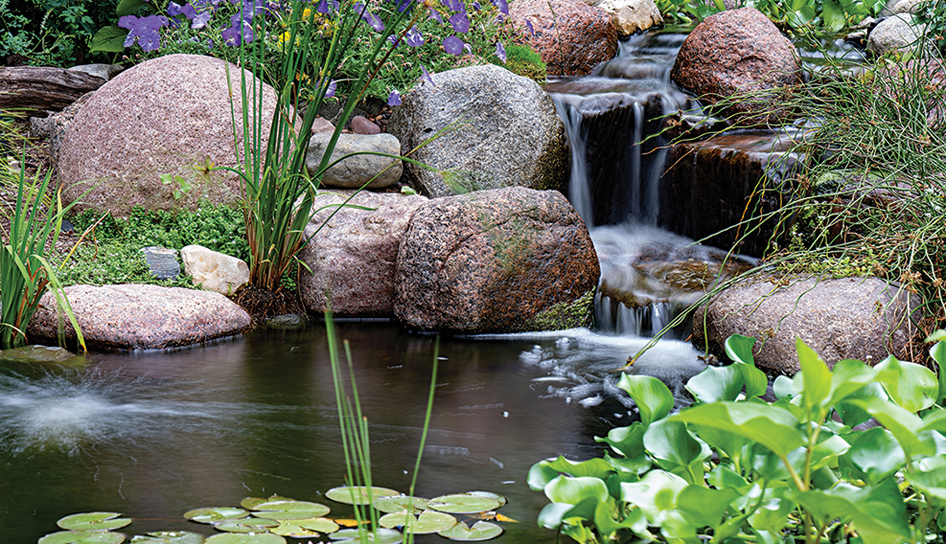
8. Lack of Proper Filtration
Filtration is key to a low-maintenance ecosystem pond and shouldn’t be overlooked.
A mechanical skimmer filter is the most important piece of a pond’s filtration, in my opinion. Pair the skimmer with a biological filter and a properly sized pump to ensure a pond that’s easy to maintain.
9. Poor Access
Before you get started on your customer’s pond, think about where to place your rock and gravel when it’s delivered. Likewise, where do you want to place the dirt during excavation?Poor planning can lead to having little to no room to get in and out of the property during the construction process.
10. Improper Berm Size for Waterfalls
If the mounded or bermed area for the waterfall is too small or too steep, the waterfall will look out of place (and more like a volcano than a waterfall). The berm and waterfall need to be scaled according to the size of the property and feature. Some of your customers may want a big waterfall that looks and sounds great, but it can become difficult and expensive to build, while also overpowering the space. The waterfall needs to fit with the property and lifestyle of the pond owner.
To ensure “Ponds Done Right,” be mindful in avoiding these common mistakes that both new and experienced pond builders sometimes make. And to make sure you’ve got “Customers Served Right,” don’t hesitate to educate others on the importance of proper pond location and best practices in construction techniques.

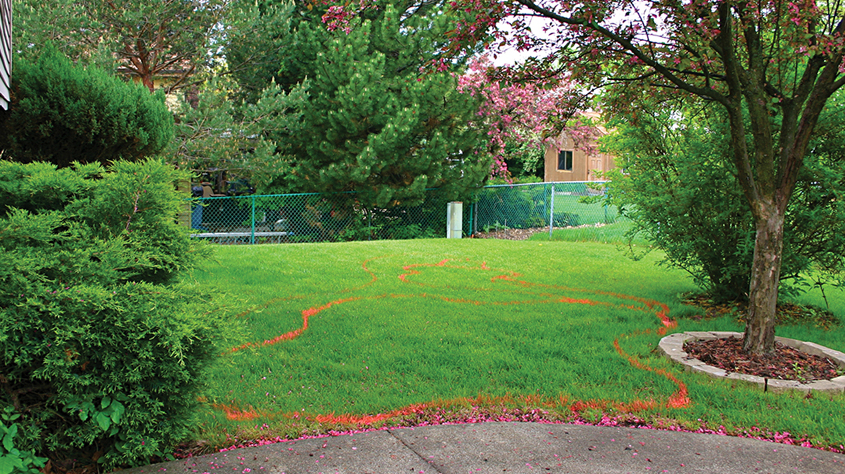
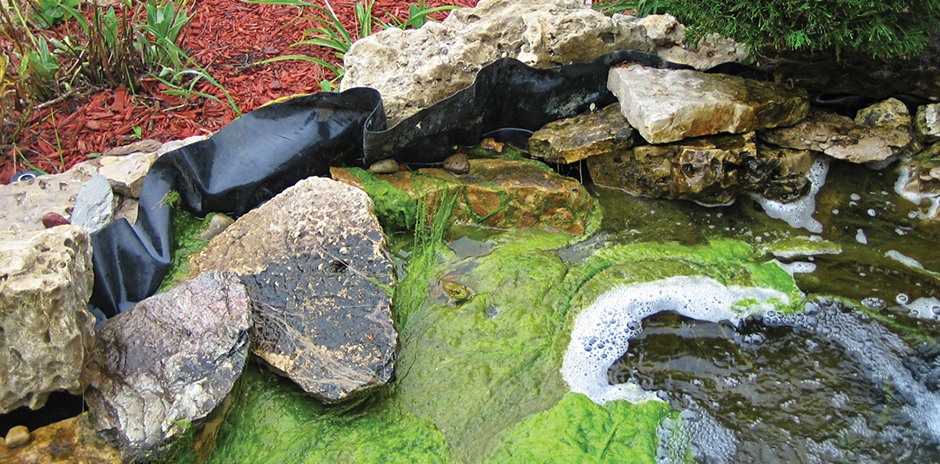

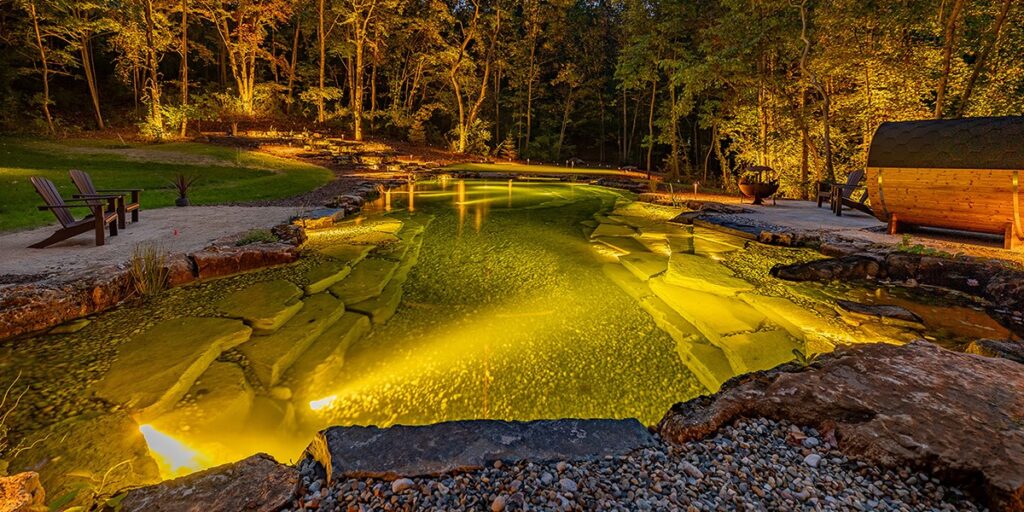
Great article to avoid the pond building mistakes. Most people make many mistakes when building a pond, I think the article is great and the article will help them to build the best pond. Nice article.
Thanks